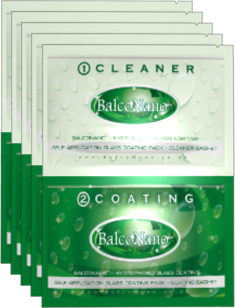Hydrophilic Glasses
There are two categories of what is known in the market as “self-cleaning” glass; two distinctively different approaches to the same problem
1) Glass coated or applied with hydrophilic layer that uses photo catalytic decomposition
2) Glass coated or applied with a hydrophobic protective coating.
Glass being a very porous and microscopically rough surface is a magnet to dirt, contamination, bacteria and various other deposits. This, over time, deteriorates the surface, brilliance and clarity of the glass. This is why you will find glasses, in particular those that have been exposed to the elements for a long time, which cannot be cleaned, no matter what cleaning material is used. This happens because the dirt, grime and contamination are so deep and so rooted into the surface of the glass that it cannot be removed.
To simply explain what these terms actually mean and do and try to point out the important pluses and minuses of each type. Let’s start with the two major differences; hydrophilic and hydrophobic.
Hydrophilic (Hydro = water + philic = to attract or like) simply means that the glass attracts water and make it spread out like a thin film on the surface. Hydrophobic (Hydro = water + phobic = to repel or dislike) which means the glass will repel water and any water that comes in contact with the glass will attempt to have as little contact as possible with the glass and will create spherical droplets on the surface.
If we begin with the first type, the hydrophilic; this is glass possesses a film of titanium dioxide coating. The “self-cleaning” properties manifest in two stages. The "photo catalytic" stage (simply meaning the accelerated process of using the ultraviolet light from the sun to break down the organic dirt on the glass) and hydrophilic sheathing stage, during which rain washes away the dirt, leaving almost no streaks, because hydrophilic glass spreads the water evenly over its surface.
The plus points of hydrophilic “self-cleaning” are: Under the right conditions, meaning frequent sun and rain, or if hosed down regularly will reduce the cleaning cycle required of glass. The coating is stable and has a long life span.
Minuses of the hydrophilic type: Titanium dioxide–based glass cannot decompose inorganic dirt, thick non-transparent deposits, such as paint or silicone, water stop fingerprints, or dust produced during construction. This glass also negatively reacts with silicone and will require specialist glazing.
If the glass gets damaged it will require replacement of the glass as no onsite application is possible.











